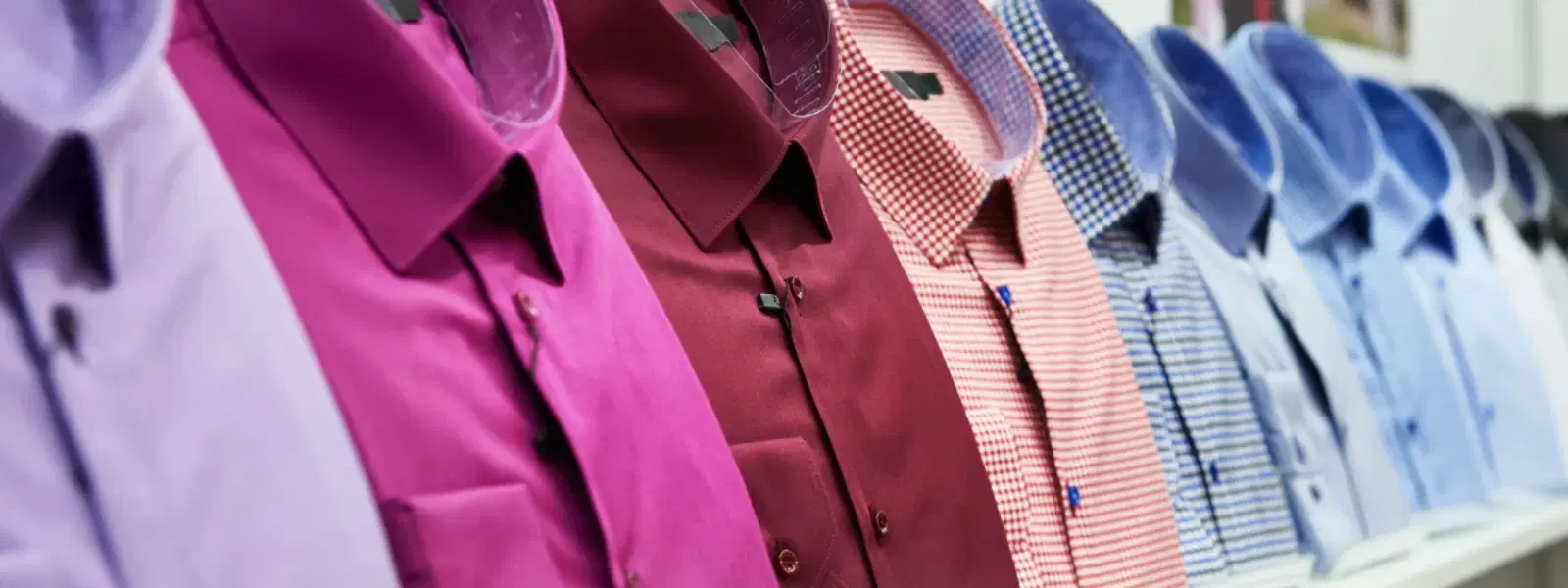
Apparel & Accessories
•04 min read
-b4b0ee01-7102-4782-b4cc-72450eaeb58c.png&w=3840&q=75)
Choosing the right fabric for shirts is key to unlocking comfort, style, and durability in your wardrobe. In this guide, we will help you understand the best fabric for shirts by exploring different types of shirt fabrics and why they matter. By the end, you will be equipped with a checklist that makes it easier to select breathable fabrics for shirts that suit your lifestyle while expressing your unique style.
Before you buy a new shirt, it is important to know the basics of fabric selection. What makes a fabric comfortable or durable often comes down to its fiber composition, weave, and weight. When looking for the best fabric for shirts, you should pay attention to several important factors. These include the type of fibers used, such as natural shirt materials like cotton and linen versus synthetic options; the weave type like poplin, twill, or chambray; the thread count, which impacts softness and longevity; and the overall weight of the fabric. Lightweight shirt materials are perfect for summer, while heavier fabrics may be more suited for cooler weather. Not least, consider how breathable the fabric is so you stay cool and comfortable all day.
Diving deeper into popular shirt fabrics, you find that each fabric offers unique benefits that cater to different style and comfort needs. For instance, cotton fabric for shirts is highly favored for its softness and versatility. Cotton is great for casual, formal, and summer shirts, offering variations such as Egyptian cotton, Pima cotton, and organic cotton which all provide soft fabrics for shirts that are both comfortable and practical. Linen fabric for shirts is another excellent choice, as it is lightweight and highly breathable. Its natural texture lends a relaxed yet sophisticated look, making it ideal for hot climates. Additionally, polyester offers durable fabrics for shirts that are wrinkle-resistant and low-maintenance. Often, rayon or blended fabrics, like cotton-polyester mixes, combine the softness of natural fibers with the durability and moisture-wicking attributes of synthetics.
Using a practical checklist can help you narrow down your selection to the best fabric for shirts. When evaluating a fabric, keep these key points in mind: comfort, breathability, durability, style, and climate suitability. Prioritize soft fabrics like cotton and rayon, which are excellent for all-day wear. Look for smooth finishes, such as those found in poplin or pinpoint, which add an extra level of comfort. For breathability, natural materials such as cotton and linen stand out, ensuring that your shirt stays cool even on hot days. When durability is important, seek out fabrics with strong fibers and higher thread counts. Consider style by choosing fabrics that work for both formal and casual occasions, whether that means opting for the clean look of broadcloth or the relaxed vibe of chambray. Finally, choose fabrics that suit the climate: lightweight options like seersucker or linen for warm weather, or heavier materials like flannel for colder months.
-961388ae-2e6f-4656-ab76-3780ab6a42c4.png&w=3840&q=75)
Pro Tip: How to Identify High-Quality Shirt Fabrics
When selecting shirt fabrics, always check for tightly woven fibers, consistent texture, and a smooth finish. For cotton shirts, varieties such as Egyptian or Pima cotton are known for their exceptional softness and durability. Similarly, linen should never feel heavy; it must be lightweight and highly breathable, ensuring comfort even in the heat.
Making a choice between natural and synthetic fabrics depends on your personal priorities. Natural shirt materials, like cotton and linen, are celebrated for their natural softness, breathability, and eco-friendly appeal. These fabrics are perfect if you are after comfortable shirt fabrics that feel gentle on your skin. However, they might wrinkle easily and can require a bit more care. On the other hand, synthetic fabrics are known for their durability and resistance to wrinkles. They are especially suitable when you need shirts that withstand active lifestyles or frequent wear. Although these fabrics might lack the softness of natural fibers, many modern blends manage to strike a balance by offering the benefits of both worlds.
Your choice of fabric can vary depending on the occasion. When it comes to formal shirts, fabrics like broadcloth, poplin, and pinpoint cotton are ideal because of their polished appearance and wrinkle resistance. For a more casual look, explore fabrics like chambray, linen, or even flannel, which can add a relaxed feel to your outfit. Summer demands special attention to fabrics, so opt for lightweight shirt materials such as linen and seersucker that promote airflow and moisture-wicking. For those seeking a touch of luxury, premium options such as Egyptian or Sea Island cotton create an exclusive, elegant finish. Remember, the best fabric for shirts is not only about how they look, but also how they feel and perform in your daily life, ensuring convenience and comfort whether you're lounging at home or out on the town.
-68be3552-55c1-4572-9cbe-6f32de66a775.png&w=3840&q=75)
Cotton is widely regarded as the best fabric for shirts because of its soft texture, breathability, and versatility. Additionally, linen offers a great alternative for summer wear with its natural, lightweight feel.
While 100% polyester shirts provide durability and moisture-wicking properties, they may lack the natural softness and breathability offered by fabrics like cotton and linen.
Luxury shirts are often crafted from premium materials such as Egyptian cotton, Sea Island cotton, or even silk blends, ensuring a high level of softness with an elegant finish.
Choosing the best fabric for shirts involves balancing comfort, style, and practicality. This checklist has highlighted the importance of understanding fiber composition, weave types, and fabric weight, along with the benefits of both natural and synthetic materials. Whether you prefer the breathable comfort of cotton and linen or the durable, low-maintenance benefits of polyester blends, you can find options that are adaptable for any occasion. By keeping these tips in mind, you will be well-equipped to choose fabrics that not only enhance your wardrobe but also express your unique style in a modern, aspirational way.